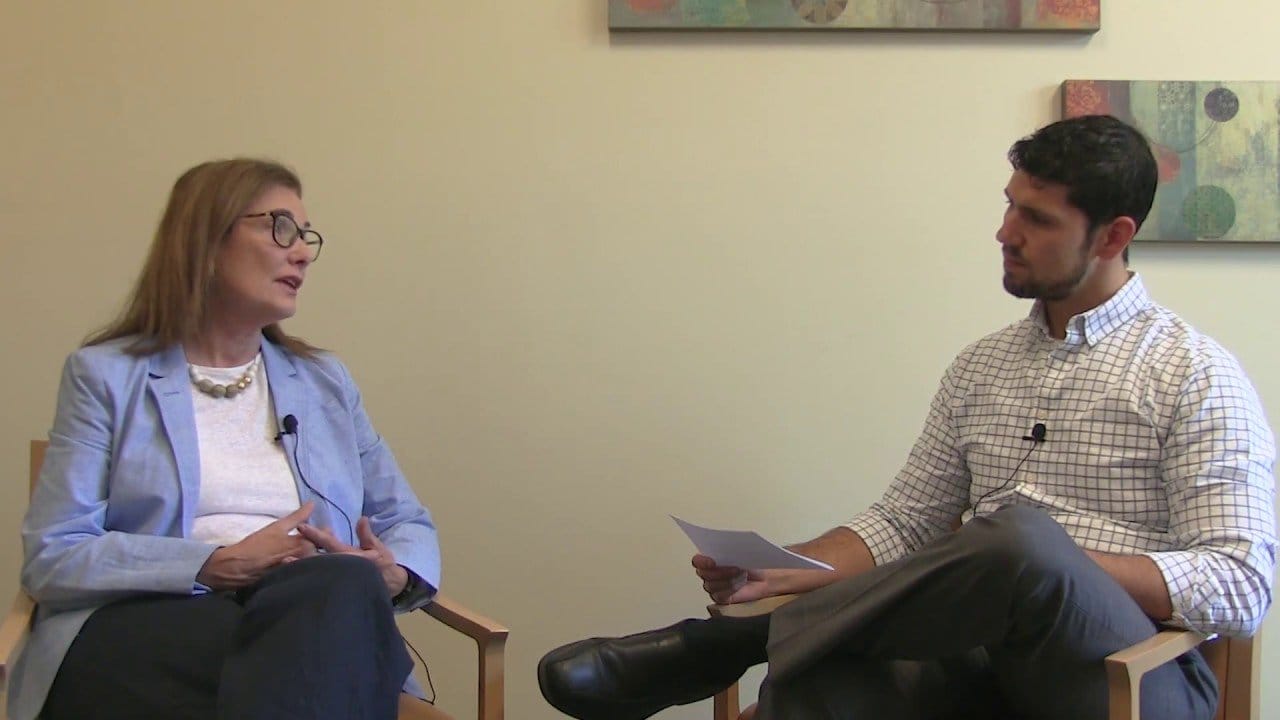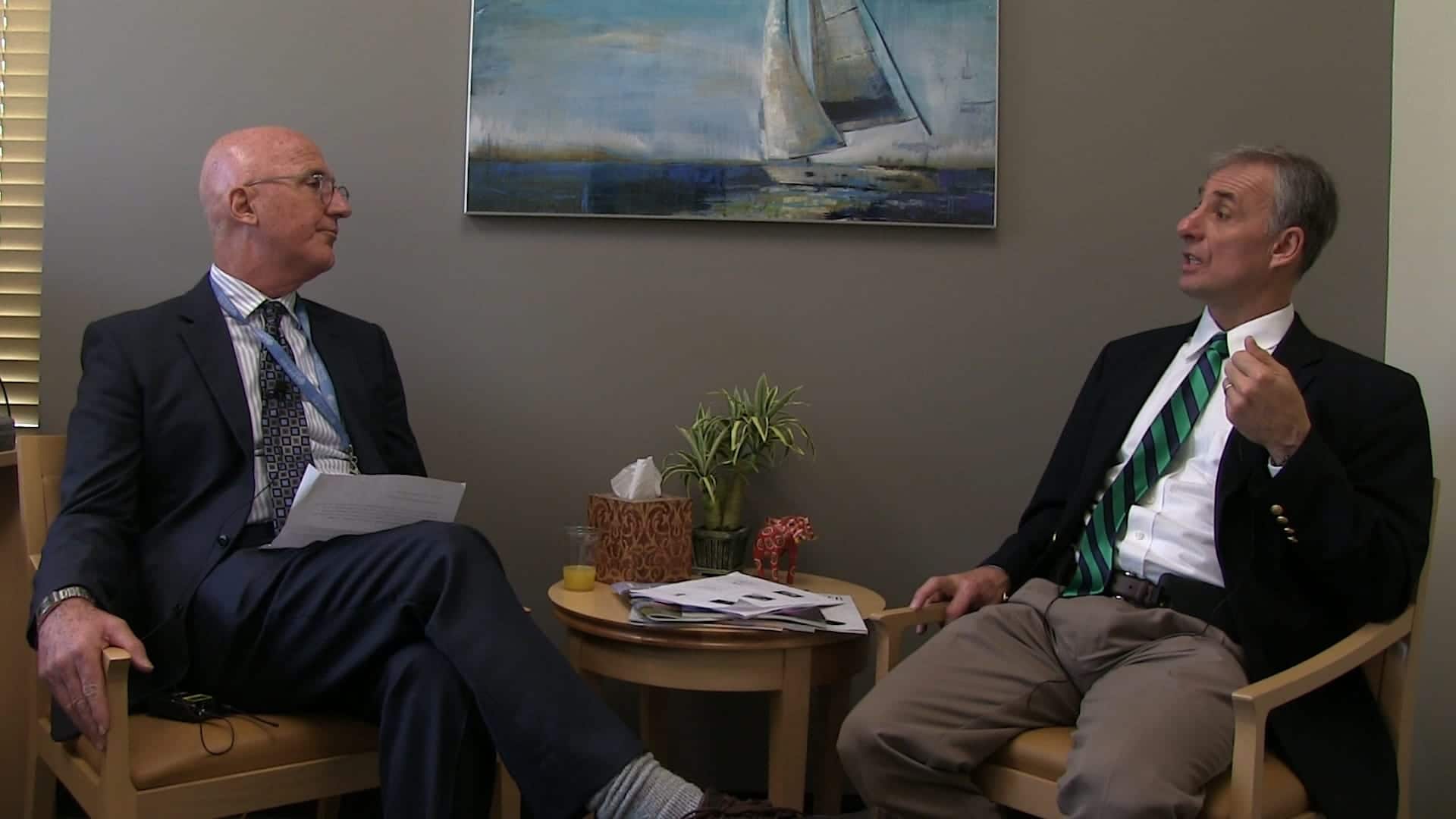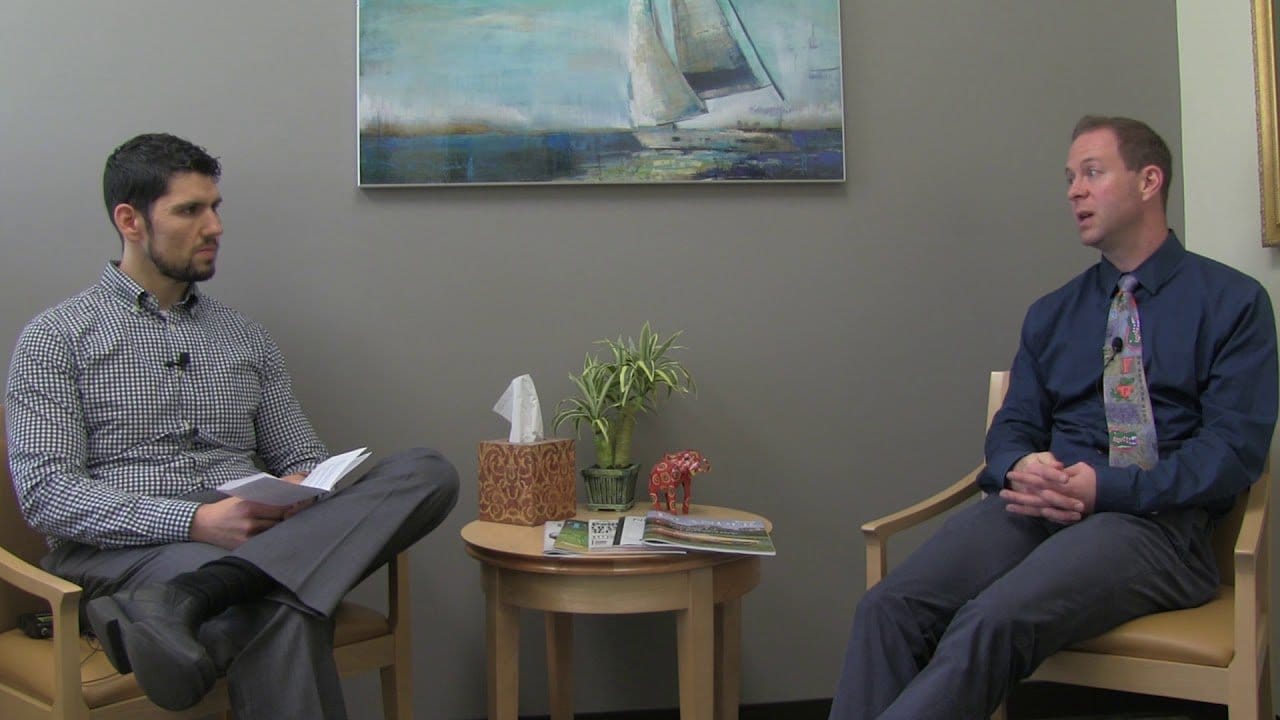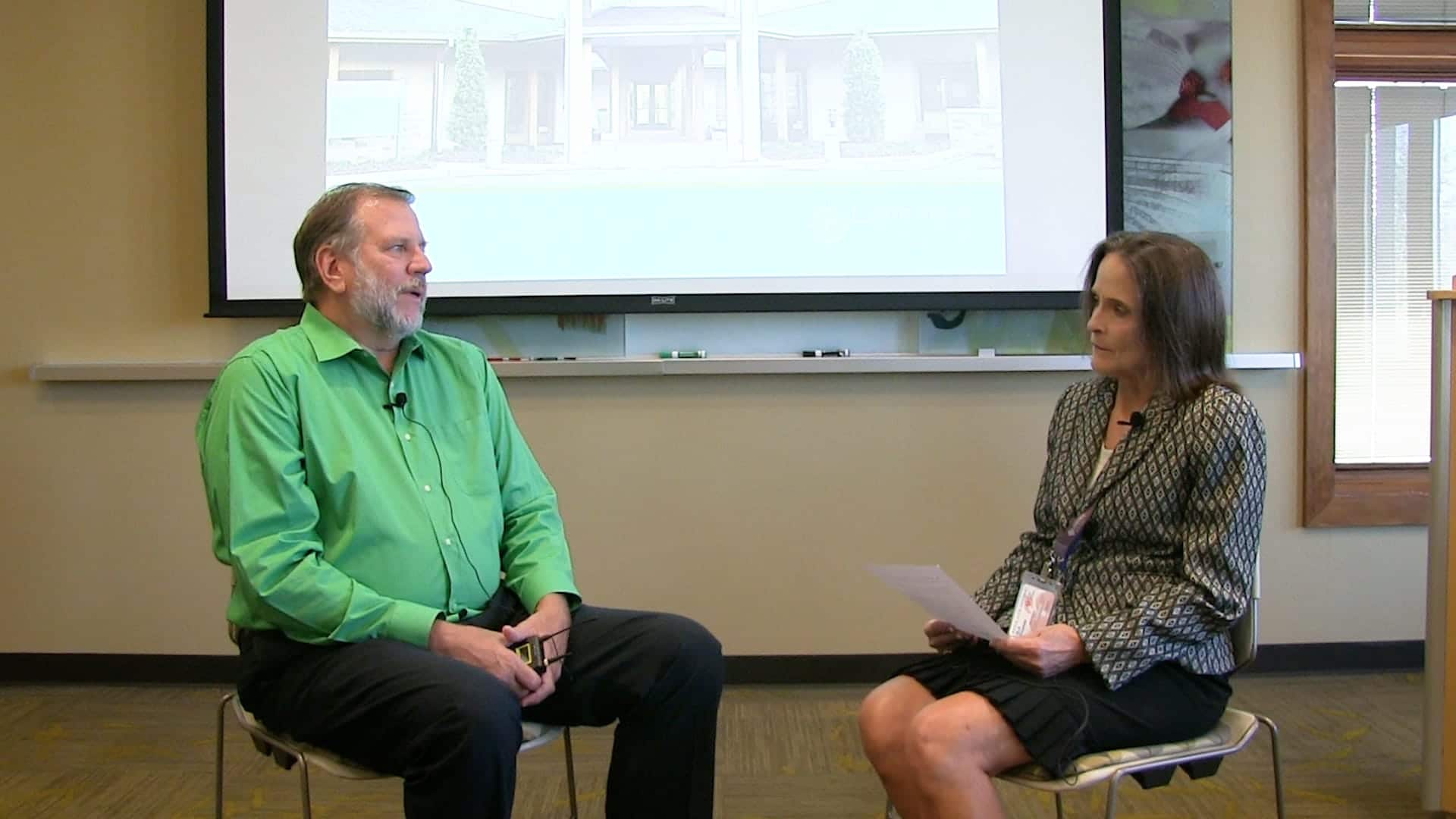Our Medical Chief of Staff, Dr. Kevin Holbert, takes a few minutes to sit down and talk about Lakeview’s medical team and the integral part they play in the admission and treatment of our patients.
Gina Thorne: This is Gina Thorne with Lakeview Health and I’m pleased today with Dr. Kevin Holbert who is our Chief of Staff?
Dr. Kevin Holbert: Correct! Medical Chief of Staff.
Gina: Ok. Medical Chief of Staff for Lakeview Health and we’re very excited to have you today, Dr. Holbert. Thank you for joining us.
Dr. Holbert: Thank you Gina, I’m glad to be here.
Gina: So today we’re going to talk a little bit about our impressive medical department here at Lakeview, so we invited you to come in and share with us a little bit more the role of our medical department and what does it do for the patients here at Lakeview?
Dr. Holbert: Well thank you Gina, I’m pleased to share a bit on that topic. I would say the role of our medical department is quite vital to the care of our patients at Lakeview even starting before the patients get here. First, our medical department assists our intake center in determining patient appropriateness for treatment in our facility and we are a 24/7 admitting facility, so one of our medical providers is on call for admissions every day. Upon arrival, our patients are thoroughly assessed for their addiction, general medical, general psychiatric histories, including a full history and full physical exam. Medication detox protocols are selected based on withdrawal, or anticipated withdrawal, withdrawal symptoms and adjusted moving forward in treatment based on a patient’s symptoms and response to treatment. We also offer anti-craving and relapse prevention medications such as naltrexone and vivitrol which are encouraged for patients where appropriate. Chronic and newly diagnosed medical and psychiatric conditions are managed by the medical team throughout a patient’s stay, including pain management. Referrals are made and other consultations with medical specialists within the community are obtained as indicated. Also, a full psychiatric evaluation is completed on each patient within seven days or sooner if needed. Co-occurring psychiatric disorders, such as depression, bipolar, anxiety including PTSD, OCD, attention deficit disorder, schizophrenia are identified and treated throughout the stay. The medical department also plays a significant role in assisting the treatment team in developing an individualized aftercare plan; including follow up appointments and referrals to help our patients maintain sobriety and optimal physical and mental health following their treatment.
Gina: So you guys have a really detailed, sort of robust set of services that you offer for the patients here at Lakeview. Often times the most common questions that come up with callers that are looking for treatment at Lakeview want to know more about detox because that can be such a scary time when folks are seeking treatment. You know, that early stage of recovery, what’s my body going to go through when I’m going through that process? Can you talk to us a little bit about the detox protocols that we have here? For those most common areas of focus, like opiates, alcohol, benzos, those things that are most common or our folks coming into treatment.
Dr. Holbert: Absolutely, Gina. We have detox protocols that include varying schedules of phenobarbital, clonidine, and suboxone for opiate detoxification selected based upon our patients use history and presence of withdrawal symptoms. For alcohol detoxification, phenobarbital may be employed, but more commonly we are selecting a schedule taper of Librium or serax. For benzodiazepine withdrawal, we again typically use phenobarbital, but also may opt for a longer acting benzodiazepine taper such as with Klonopin to detox someone who may have been addicted to shorter acting benzodiazepines such as Xanax.
Gina: And so do you find that those medications are helpful in people being comfortable when they’re coming into treatment? If somebody were to ask, “How comfortable and I going to be in treatment?” what would you tell that client?
Dr. Holbert: They absolutely help with comfort, Gina, and we adjust the regimen as indicated for each patient to optimize their comfort.
Gina: And they’re seeing a doctor every day when they’re in the detox phase?
Dr. Holbert: Absolutely.
Gina: Ok. Well that’s really important for many of our listeners because I know that can be really complicated for folks when they’re making the decision to seek treatment. One of the other things that helps us in doing the work that we do is we obviously treat many patients with co-occurring or dual-diagnosis issues. We do take patients with dual-diagnosis. What’s the most psychiatric compromised client we can take here at Lakeview?
Dr. Holbert: Well, as we discussed, we are definitely a center that treats co-occurring disorders, both medical and psychiatric. I want to stress that we do now have a medical team consisting of two fulltime physicians, one fulltime and one part time psychiatrist, nine fulltime mid-level providers, including physicians and nurse practitioners, and five part time mid-level providers, all with varying medical, psychiatric, and addiction backgrounds that assist with daily patient care. Thus, we can treat a broad range of psychiatric illness and severity of symptoms. While we are not a lock facility, we do not have one-on-one sitters, thus we don’t accept, or continue treating patients that are acutely suicidal or in any way in acute danger to self or others. If this situation arises during treatment, these patients may be referred to one of our local psychiatric stabilization units for further care. We often do accept back, though, to complete treatment with us once the acute crisis has been resolved. We do employ current psychotropic medication management and various psychotherapies to treat these co-occurring psychiatric illnesses.
Gina: So it sounds like we’ve got great wraparound services that are available, not just in our facility but also in the community if the need arises.
Dr. Holbert: Absolutely. We’re pretty comfortable dealing with most situations.
Gina: That’s fantastic. So some folks can’t take clients that have significant medical issues and Lakeview Health has been known to take patients with significant medical acuities that come along with their disease. Can you describe the type of client we’ve served in the past who might have had those medical issues?
Dr. Holbert: Well Gina, we generally can and do identify and treat and assortment of medical illnesses, anywhere from arthritis, to hypertension, to COPD and asthma, to diabetes, with internal medicine and family medicine trained staff, we can accept the wide variety of patients with these co-occurring medical disorders. For certain preexisting conditions, such as multiple sclerosis or cancer, or in-stage renal disease for example, we’ll often request consultation and clearance from the patient’s treating specialist for them to leave their home area and come to treatment. For example, we worked with one patient’s nephrologist in the northeast to allow her to come to treatment at Lakeview and continue her dialysis three times weekly while she progressed through the program here. She completed the program successfully and returned home.
Gina: That’s great news. So for those of you that are listening and you do know of someone or if you yourself are suffering from this disease and you’re concerned about whether or not the medical aspects of your disease can be managed, we do have the support to help them and we would certainly want our medical team to do an early evaluation. It’s not a hard and fast ‘yes’ across the board for everyone, but we do feel comfortable that we’ve got a medical team that support them.
Dr. Holbert: I absolutely agree.
Gina: Great! Well thank you, Dr. Holbert, for your time today. We appreciate the feedback, and for those of you that are interested in learning more about Lakeview, we invite you to visit us at LakeviewHealth.com or if you know someone who is struggling with this disease and needs help right away, please call us at 866.704.7692.




